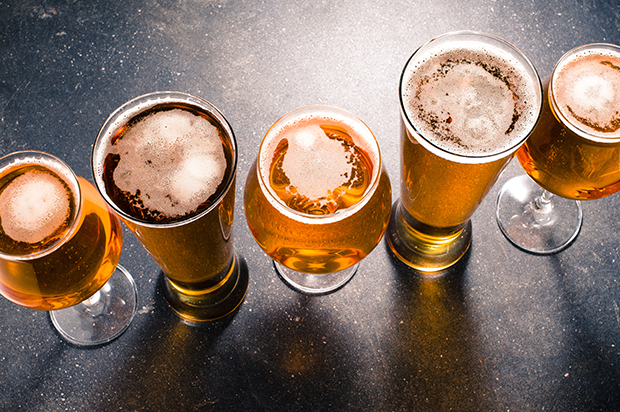 If you think alcohol Prohibition ended with its repeal in 1933, you would be wrong. As the map below shows, alcohol is still banned in a huge number of places in the U.S. Counties in red are where alcohol sales are forbidden, counties in blue are where it is permitted, and counties in yellow are “partially dry,” that is, they are either wet communities within dry counties or vice-versa:
If you think alcohol Prohibition ended with its repeal in 1933, you would be wrong. As the map below shows, alcohol is still banned in a huge number of places in the U.S. Counties in red are where alcohol sales are forbidden, counties in blue are where it is permitted, and counties in yellow are “partially dry,” that is, they are either wet communities within dry counties or vice-versa:

After prohibition, two-thirds of the states allowed localities to ban the sale, and in some cases, the possession and consumption of alcohol, while three states—Kansas, Mississippi and Tennessee—maintained Prohibition except by affirmative local option.
It could be that states and counties still enforcing Prohibition are good predictors of places where it will be difficult to legalize marijuana. AlterNet’s list of the nine last states likely to legalize it includes several Prohibitionist states (Alabama, Kansas, Oklahoma) and only fails to include two others (Arkansas and Mississippi) because citizens there have access to the initiative process.
It’s not a complete match: There are still dry counties in some Midwestern, Mid-Atlantic and New England states, and that’s probably not going to stop Massachusetts, Michigan, New Hampshire, and Vermont from legalizing it within the next few years—maybe even this year in a couple of cases. And there are broad swaths of the Plains States and Intermountain West that are not dry, but are socially conservative and unlikely to be legalization leaders, such as the Dakotas, Idaho, Utah, and Wyoming.
But in the Mid-South and the Southern Plains, the social conservatism that drove (and still drives) Prohibition remains in full flower. The heartland of Prohibition is also likely to be the heart of resistance to marijuana legalization.
You’d think the Prohibitionist places would learn. As Atlas Obscura pointed out, Prohibition creates its own problems. University of Louisville researchers found that dry counties have significantly higher rates of meth lab seizures, while Texas researchers found that drug-related crime was higher in counties without legal access to alcohol.
But don’t hold your breath.

